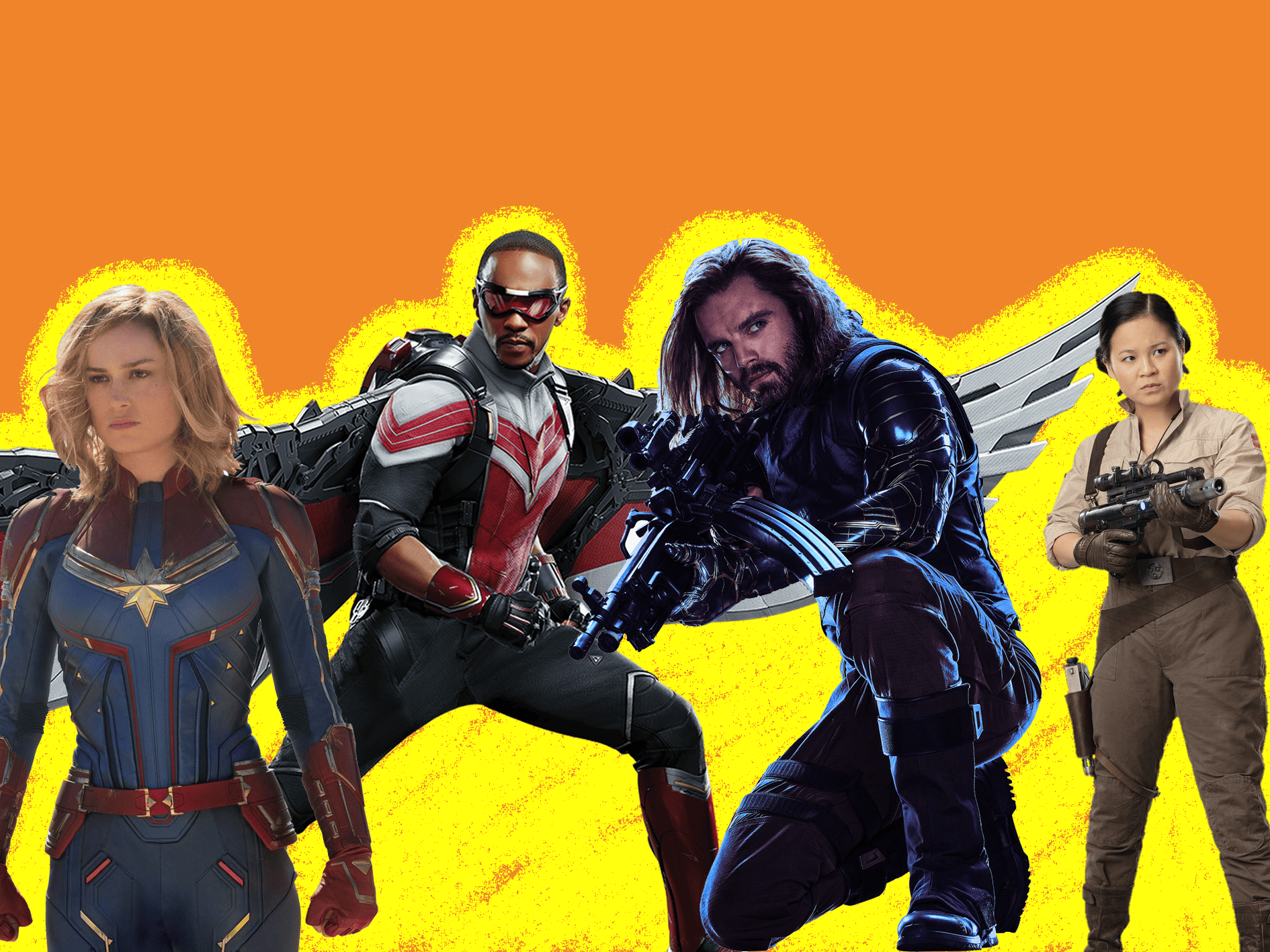By Amber Wiles
There is a joy that comes from being part of a fandom. Fandom allows people to share their love of something with people who love it just as much, and that can be amazing. Over the last two decades, the idea of fandom has grown exponentially, particularly with the rise of social media, leading to pop culture becoming a prominent part of society. But with this, as with anything, comes a dark side that isn’t often talked about…toxic fandoms.
In recent years, there have been several cases of fandoms overstepping when it comes to their involvement within fandom culture. There are so many fandoms nowadays and each comes with its issues, so I’ll be talking about a few specific fandoms that create an overall picture of these issues, and how deeply rooted they are to wider society. Where better to start than with one of the original fandoms, Star Wars.
When George Lucas first wrote Star Wars in the 1970’s it would have been difficult to predict how important the franchise would become within mainstream society. Eleven films and numerous spin-off shows later, the Star Wars films franchise has dominated pop culture in its almost five-decade run. The good versus evil stories are timeless and people have found something special in the franchise, but some “fans” go out their way to use the fandom to spread their hateful rhetoric. When the most recent Star Wars trilogy was announced in 2012, it seemed Star Wars was moving with the times. The film cast Daisy Ridley as Rey, John Boyega as Finn, Adam Driver as Kylo Ren and Oscar Isaac as Poe, and with it a new age of the franchise, but it also revealed the toxic side of the fandom that has been lurking for decades. First came the misogynistic trolls who weren’t happy that the new trilogy would have a female lead, apparently Princess Leia was enough female representation. Next came the racist reactions to John Boyega’s being cast as Finn, a Stormtrooper who escapes and joins the rebel cause. Apparently, the FICTIONAL Stormtroopers couldn’t be Black as that wasn’t realistic, but magical Jedi’s and Alien musical troops were wholly realistic. A hashtag calling for #BoycottStarWarsVII was started and many of these trolls stated the movie was pandering to diversity. These reactions were simply horrendous, but when the second movie in the trilogy was released, it only got worse. Kelly Marie Tran was cast as Rose Tico, the first Asian American lead in a Star Wars movie. Her casting looked to mark another stride in the history of the movies, yet the backlash completely overshadowed that. Tran was barraged with racist and sexist abuse, similar to her previous co-stars, and was eventually forced off social media as a result. Instead of doing anything to combat these trolls, Disney and the Star Wars team decided to reduce her role in the final movie alongside John Boyega. The response from these companies should not have been to pander to these hateful bigots, and yet that is exactly what they did. Toxic sides of fandoms should not dictate the progression of a characters arc. Kelly Marie Tran and John Boyega played their roles perfectly and should have been given every opportunity to be the main characters that they were at first presented to be. Instead, they were side-lined.
The toxic fan problem didn’t end there either. It has also weaved its way into another mega pop culture property… Marvel.
The Marvel Cinematic Universe grew alongside social media and so toxicity from the fandom seemed almost inevitable. Most recently was the reaction to Wyatt Russell in The Falcon and The Winter Soldier (TFATWS), who plays the new Captain America: John Walker. Now obviously, fans were upset that we had a new Captain America who was not Steve Rogers or Sam Wilson, but for those who have been watching, that’s kind of the point. His character was supposed to create a reaction, but the problems came when fans were unable to separate the character from the actor. Wyatt Russell received hateful comments on social media, many commenting on his looks and demeanour. This relentless trolling didn’t end with Wyatt Russel, with many trolls attempting to gaslight the prevalent topics of racism and trauma in the series, stating that “this isn’t that kind of show”. The show which has focused on Sam Wilson’s journey to becoming Captain America has explored what it means for a Black man to take on the mantle of Captain America. This is a conversation that should be happening, as it echoes the realities of many Black people in America, however instead of embracing Marvel’s long-overdue exploration of real-world issues, some people have decided to ignore the shows obvious direction. Across social media, Black Marvel creators who talk about pop culture have faced an immeasurable amount of hate from racist trolls who have attempted to gaslight any conversations surrounding the topics of the show. TFATWS’s hate is only the latest in a long line of toxicity aimed at Marvel actors. Brie Larson has faced and continues to face a bombardment of hate over her role as Captain Marvel, with sexist trolls continually targeting the actress and calling her unlikeable and rude, for being confident and sarcastic, a trait found in most of the male MCU actors. Furthering this, when a photo of Chadwick Boseman was released in early 2020 people took to Twitter and called him ‘crack panther’, this was deeply offensive on many levels but truly heart-breaking when a few months later it was revealed Boseman had passed away due to a long battle with colon cancer. Another instance of hate being directed towards Black actors within the franchise comes when Zendaya was also forced to deal with racist and sexist trolls following her casting as MJ in Spiderman. Again the same racist argument was spouted in the name of comic book accuracy, and another actor was forced to bear the brunt.
Collectively, these events paint a striking picture of where fandoms are heading if things are not changed. Fandom is supposed to be a space for people to share their joy and love for pop culture, and should never be a place for hateful rhetoric. I love pop culture, but with the way it is heading, I am less willing to admit my love for these fandoms because what I am seeing isn’t what I love. This is an issue that needs to be addressed because fandom is about sharing the love of pop culture – not of sharing hate.
Cover Image Credit: Tom Parker


